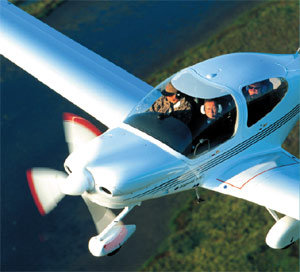
News
Wider Skills in Demand
Operators are starting to view a commercial pilot’s licence as one part of a larger package
October 1, 2007 By Brooke Shaw
 PRESSURE FOR NEW skills in the aviation industry comes from several
PRESSURE FOR NEW skills in the aviation industry comes from several
directions: from regulatory changes affecting training and operations
requirements and from globalization of the industry, for example.
Against a backdrop of liberalized trade agreements and open-skies
alliances among air operators and even pilot associations, the industry
has been actively pursuing harmonized licensing requirements and
standardization of some aspects of training. Given current efforts in
the US and Europe to revamp and elevate skills and training
requirements, that bar is likely to be set quite high in the future.
Studies
by the Air Transport Association of Canada (ATAC), Human Resources
Development Canada (HRDC) and the Canadian Aviation Maintenance Council
(CAMC) show a need among operators to standardize their flight training
curriculum, to rate prospective flying schools and to train pilots to
bring more to the table than just a commercial pilot’s licence.
For
Glenn Priestley, ATAC vice-president for fixed-wing, air taxi and
flight training, airlines are interested in hiring people with the
right attitude. “There is more than just flying hours that makes up a
person’s life experiences. The employer looks toward efforts at higher
education to measure the diligence and integrity of the individual.”
Indeed,
most operators cite general attitude as the most important factor in
assessing a pilot seeking employment, followed by a pilot’s
interpersonal and communications skills and potential compatibility
with the organization’s culture.
Last spring, CAMC and ATAC
partnered with the industry to revisit training priorities and review
recommendations presented in an earlier study of supply and demand
trends for pilots in Canada. Follow-up to the Human Resource Study of
Commercial Pilots in Canada was released at the 2003 ATAC annual
general meeting in Quebec City. The upshot was a recommendation to
develop national occupational standards for commercial pilots,
including an accreditation system.
The report encourages
development of industry standards defining the knowledge, skills,
competencies and attitudes required by pilots to do their job. The
strength of pilot training programs, supported by implementation of
quality assurance programs and an accreditation system, will provide
the required foundation. This framework will fully support the need for
pilots to relate to new technologies, acquire new skills, adapt to
regulatory change and harmonize learning requirements, significantly
raising the bar of pilot proficiency to the levels demanded by today’s
industry and society.